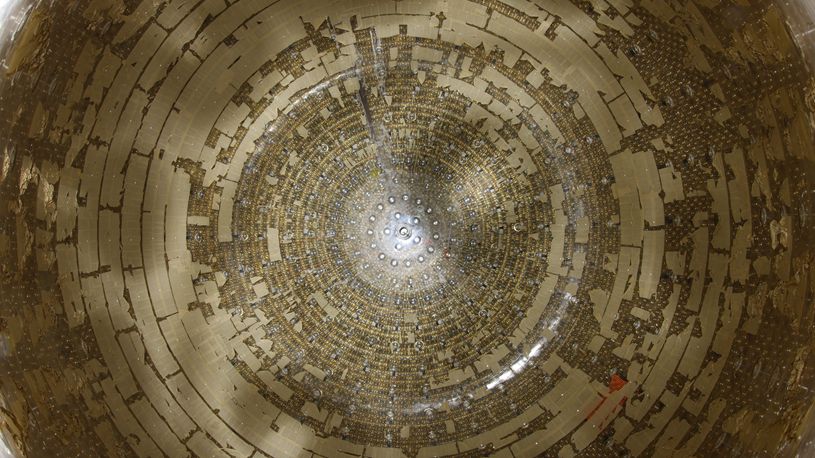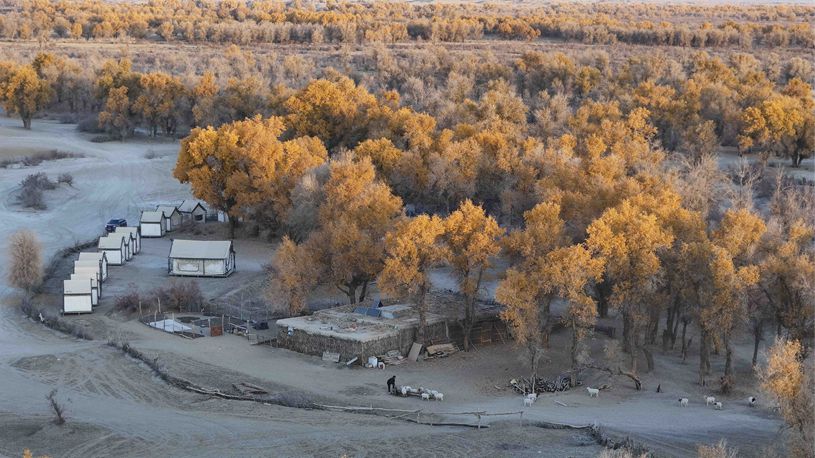The ceasefire deal could bring temporary stability to the region and possibly pave the way for negotiations with Hamas, said Yonatan Freeman, an international relations expert at the Hebrew University of Jerusalem.
JERUSALEM/BEIRUT, Nov. 27 (Xinhua) -- The Israeli cabinet on Tuesday night approved a ceasefire deal with Lebanon, paving the way for an end to a nearly 14-month conflict tied in great part to the ongoing one in the Gaza Strip.
The Israeli cabinet approved the deal by a vote of 10-1. The ceasefire takes effect on Wednesday at 4:00 a.m. local time (0200 GMT). The Lebanese army will take control of its territory over the next 60 days, Israel will gradually withdraw, and civilians will return home, according to the deal.
In a televised speech ahead of bringing the draft to his cabinet for a vote, Israeli Prime Minister Benjamin Netanyahu said Israel had "set Hezbollah back decades" through the war and vowed to strike the Lebanese armed group if it violated the ceasefire deal.
The ceasefire deal, brokered by the United States and France, will provide the conditions needed for a return to calm in Lebanon, said U.S. President Joe Biden and his French counterpart Emmanuel Macron in a joint statement on Tuesday, pledging to work together to ensure the deal is fully implemented.
Lebanese caretaker Prime Minister Najib Mikati said he welcomed the ceasefire deal, according to a statement released by the Council of Ministers, Lebanon's cabinet.
STRATEGY RETUNED?
The ceasefire deal could bring temporary stability to the region and possibly pave the way for negotiations with Hamas, said Yonatan Freeman, an international relations expert at the Hebrew University of Jerusalem.
Netanyahu's strategy toward Hezbollah differs from his approach to Hamas. While the goal with Hamas involves its complete destruction -- both militarily and in governance -- Israel's objective with Hezbollah is to push its forces back from the northern border and weaken its operational capacity, he said.
A ceasefire with Hezbollah may allow Israel to concentrate its military efforts on the ongoing war in Gaza and the dismantling of Hamas, as well as to achieve a hostage deal with Hamas, he added.
At this stage, Israel seems to have decided that Hezbollah has been weakened sufficiently, and there's no point in pursuing an all-out campaign to eliminate every last Hezbollah fighter, said Eitan Shamir, managing director of the Begin-Sadat Center for Strategic Studies at Israel's Bar-Ilan University.
However, Shamir was pessimistic about a broader peace deal in the Middle East happening.
"It's worth noting that the war in Lebanon is not just a direct conflict with Hezbollah; it's also an indirect confrontation with Iran...This ceasefire, in a sense, represents a de-escalation with Iran," he said.
BROADER PEACE ON HORIZON?
The ceasefire deal has fueled speculation about the prospects for peace in the Gaza Strip, where Israeli attacks have killed more than 44,000 Palestinians as of Tuesday, according to figures released by Gaza-based health authorities.
"The conflict in Gaza is far from over. Much work remains to find a resolution there, but this ceasefire may enable Israel to divert resources and attention toward concluding its campaign in Gaza," said Shamir.
"A deal in the north might give Netanyahu more freedom to act in the south. It's a matter of waiting to see how things unfold," said Eyal Zisser, a Middle Eastern affairs expert at Tel Aviv University.
"In any case, achieving a ceasefire in Lebanon must come first, followed by Gaza," he noted.
Just hours before Netanyahu's television speech, Israel launched intense airstrikes on central Beirut, targeting several neighborhoods and sparking widespread panic, according to local media.
TV footage from local TV channel Al Jadeed showed civilians fleeing the targeted areas by car and on foot, causing traffic jams and further chaos across the city.
Less than six hours before the ceasefire was expected to take effect, air defense sirens were sounded in several areas in northern and central Israel.
The Israeli Defense Forces said the sirens were activated following the launch of three projectiles from Lebanon, which the Israeli Air Force successfully intercepted and no casualties were reported.■











